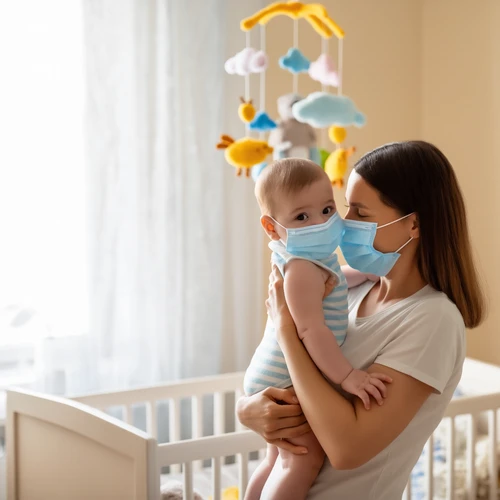Respiratory Syncytial Virus (RSV) is one of the most common viruses that infect infants and young children. Though it often appears similar to a common cold, RSV can be more severe in babies, especially those under six months or with underlying health conditions.
Infants are particularly vulnerable because their airways are smaller and their immune systems are still developing. This makes them prone to rapid inflammation and fluid buildup in the lungs, which can lead to breathing difficulties and, in severe cases, pneumonia or bronchiolitis.
Early detection hinges on recognizing key symptoms: runny nose, mild cough, nasal congestion, and a slight fever. As the infection progresses, babies may develop a high-pitched cough, wheezing, rapid breathing, or bluish lips and skin (cyanosis). A noticeable decrease in appetite or irritability can also signal worsening illness.
While most cases resolve within 10 to 14 days, parents should seek immediate medical care if the baby shows any of the following: 1) breathing faster than 60 breaths per minute, 2) grunting or flaring nostrils, 3) persistent coughing or wheezing, 4) lethargy or refusal to feed, or 5) blue discoloration of the lips or face.
Prevention is the cornerstone of RSV management. Simple habits can dramatically reduce transmission: frequent hand‑washing with soap, avoiding crowds during peak RSV season (late fall through spring), covering the mouth and nose with a mask when sick, and limiting contact with newborns for families where an older child is symptomatic. Breastfeeding offers additional protective antibodies, especially for premature infants.
If a baby is infected, supportive care at home includes maintaining adequate hydration with breast milk or formula, using a cool-mist humidifier to ease breathing, and keeping the baby upright during feeds to reduce reflux. Over-the-counter medications are usually not recommended for infants; instead, focus on rest and gentle nasal suction with a bulb syringe when congestion is severe.
Hospitalization is typically reserved for babies with oxygen saturation below 90%, signs of dehydration such as infrequent crying or dry mouth, or when there is a risk of aspiration or severe airway obstruction. In the hospital setting, treatments may include nebulized bronchodilators, steroids, or, in critical cases, mechanical ventilation.
Key takeaways for parents: keep RSV in infants in mind during cold season, watch for rapid breathing and poor feeding, practice good hygiene, and don't hesitate to call your pediatrician. Early recognition and simple home care can prevent complications and get your baby back to their energetic self before the season ends.


